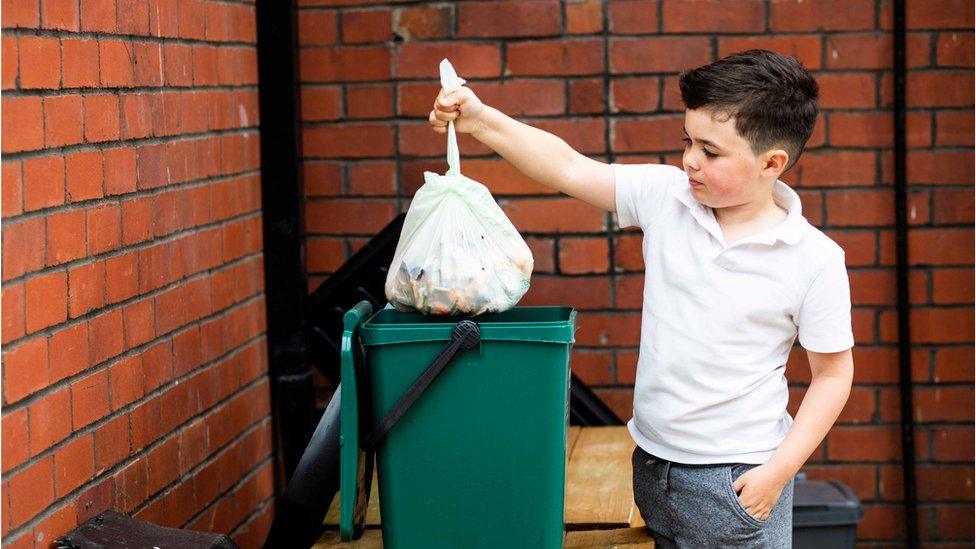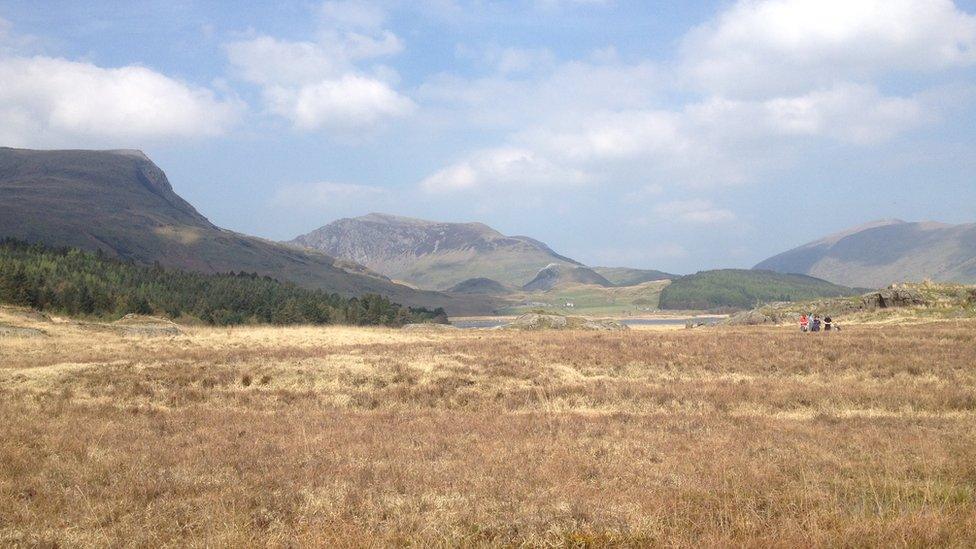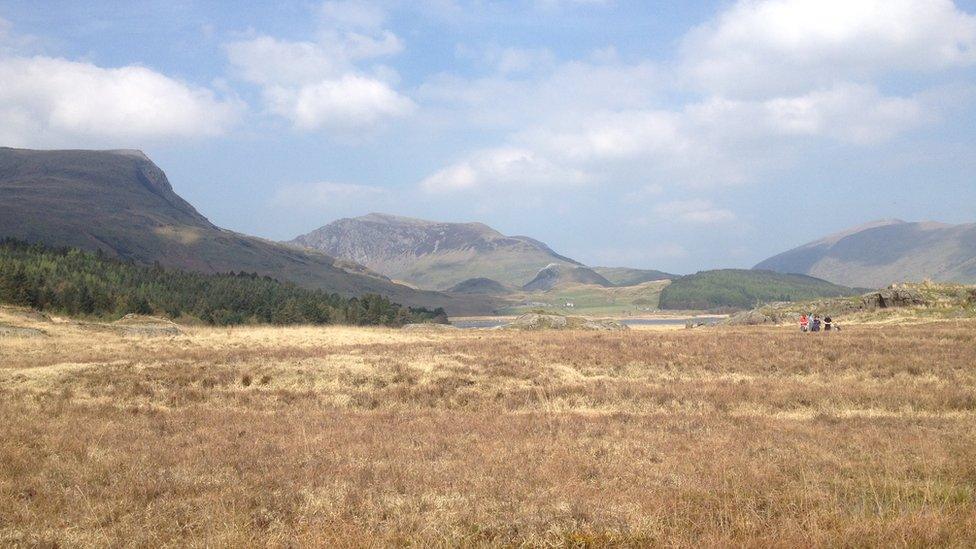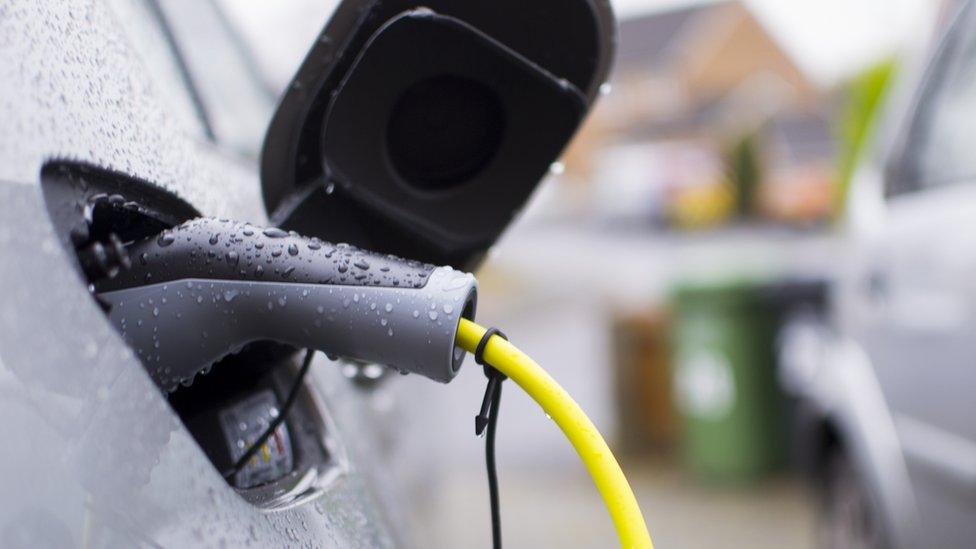Climate change: Wales falling behind on targets - report
- Published
- comments

There needs to be more electric charging points around Wales, according to the report
Wales is falling behind on actions needed to fight climate change, according to a major report.
It accused the Welsh government of making "insufficient" effort from installing electric vehicle charge points to planting trees.
The Climate Change Committee (CCC), external said work to cut emissions had been too slow in areas devolved to Cardiff Bay.
The Welsh government said it recognised the need to do more to meet challenging targets in the future.
Wales, like the UK, has a legally-binding target to reach net zero by 2050 - it means dramatically cutting greenhouse gases so the country no longer contributes to global warming.
In its first progress report since 2020, the CCC warned the Labour government in Wales was not moving quickly enough to develop the charging infrastructure needed for electric vehicles.
With only 283 publicly accessible rapid charge points, Wales was "significantly off track" and falling behind England and Scotland.

Wales' recycling performance remains good
Tree planting and peatland restoration rates were also found to be "far too low".
The rate of new woodland creation was currently less than a third of the Welsh government's target of 2,000 hectares a year, in itself a "significantly less ambitious" goal than the CCC wanted to see.
There had been "little progress" in cutting emissions from farming and land-use, and Wales was still "missing an overarching strategy for these sectors", the report said.
The Welsh government has set a series of five-yearly carbon budgets, gradually reducing how much Wales can emit to try and guide the way to net zero.
Targets for the first carbon budget for 2016-2020 had been met, driven largely by emissions cuts in power generation and industry, including the closure of Wales' last coal-fired power station at Aberthaw in Vale of Glamorgan in 2019.

Most of Wales' peatlands are upland blanket bog
But the report warned Wales would miss future goals without action to significantly speed up decarbonisation efforts across all areas of the economy.
To give a sense of the scale of the challenge, a 39% cut in emissions based on pre-pandemic levels is needed over the next five years to get back on track.
It will make difficult reading for Welsh ministers, who have recently commissioned a group of experts to explore ways of reaching net zero even earlier - by 2035 - as part of the cooperation agreement with Plaid Cymru.
Chris Stark, the CCC's chief executive warned of a worrying "gap" between ambition and delivery in Wales.
"In the past we might have talked about how Wales is one of the best places in the UK for recycling - we've tried to hand out the praise," he said.
"But now when we look forward that's not going to be enough.
"In those areas where they have the powers we're just not seeing Welsh ministers put their shoulder to the wheel and put in place the policies that will achieve the legal targets."
There was also a risk to decarbonisation efforts in Wales by "insufficient action at UK government level", according to the report.
These included areas such as steel production, with the Port Talbot works - one of the UK's biggest emitters of carbon dioxide - waiting on a subsidy deal with ministers in Westminster to help it go green.
The Welsh government said it welcomed the report and would "carefully consider its conclusions" before publishing a response.
"On publishing our final statement for Carbon Budget 1 in December, we highlighted we had lived within our first carbon budget and met our interim target for 2020," a spokesman said.
"We also recognised the need to take more action ourselves and by others to meet future challenging targets."
"The CCC has highlighted the further steps we are taking, such as the recent roads review, but also where we can do more."

IOLO'S BORDERLANDS: Searching for extraordinary wildlife along the Welsh border
WALES' HOME OF THE YEAR: Take a peek inside the dream homes on your doorstep

- Published3 October 2022

- Published28 March 2023
